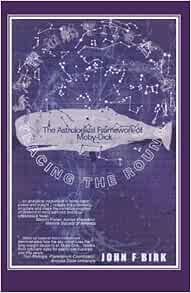

Naturally, our bodies tend to dip in energy during the early afternoon, so perhaps napping around that time is more natural than avoiding sleep until nighttime.Īfter all, the vast majority of mammals are polyphasic sleepers, which means they sleep for short periods throughout the day. People who sleep much longer than this could mean they descend into a deep sleep, and once awake, they feel groggy.ĭaytime napping is relatively common in the United States, but taking a “ siesta” is the norm in some countries. This gives the body ample time to recharge. However, if someone has missed out on sleep during previous nights, a tactical nap can help repay some of the accrued sleep debt.Īround 20 minutes is a good nap length. Generally, experts recommend people avoid naps to ensure a better night’s sleep. There is evidence that this might be due to a rare genetic mutation, so it is probably not something that someone can train themselves to achieve. However, it is worth noting that some rare individuals do seem to function fine with fewer than 6.5 hours’ sleep each night. And training the body to sleep less is not a viable option.” “In the end, there is no denying the effects of sleep deprivation. They don’t realize it because the functional decline happens so gradually.” “Some people think they are adapting to being awake more, but are actually performing at a lower level. Cynthia LaJambe, a sleep expert at the Pennsylvania Transportation Institute in Wingate, explains: People who sleep for 6 hours or fewer each night become accustomed to the effects of sleep deprivation, but this does not mean that their body needs any less sleep. Although some people might claim to feel fine with limited sleep, scientists think it is more likely that they are used to the negative effects of reduced sleep. Sadly, this is a myth.Īccording to experts, it is rare for anyone to need fewer than 6 hours’ sleep to function. There is a widely shared rumor that you can train your body to need fewer than 7–9 hours’ sleep. You can train your body to need less sleep The amount of sleep we need each day varies throughout our lives: The story gets a little more complicated, though. Overall, research suggests that for healthy young adults and adults with normal sleep, 7–9 hours is an appropriate amount. Age differences were also investigated, demonstrating larger span impairment in older children with SLD than in younger.ĭigit span children with specific learning disorder general ability index wechsler intelligence scale for children–fourth edition working memory.As with many aspects of human biology, there is no one-size-fits-all approach to sleep. This pattern was similar for different SLD profiles with clinical diagnoses of dyslexia and mixed disorder, but the impairments were more severe in the latter. Despite a GAI within normal range, children with SLD had difficulty with both digit span tasks, but more so for forward span. The correlation of the two spans with a General Ability Index (GAI) was similar in SLD, and smaller in magnitude than in typically developing children. Our results further support the hypothesis that the intellectual difficulties of children with SLD involve working memory in the forward digit span task to a greater extent than in the backward digit span task. This study examined performance in the forward and backward digit span task of the Wechsler Intelligence Scale for Children-Fourth Edition (WISC-IV) in a large group of children with specific learning disorder (SLD) as compared with a group of typically developing children matched for age and sex.


 0 kommentar(er)
0 kommentar(er)
